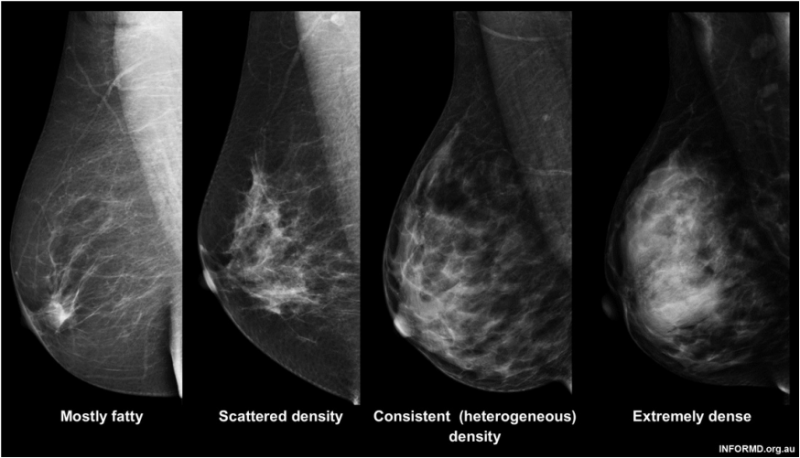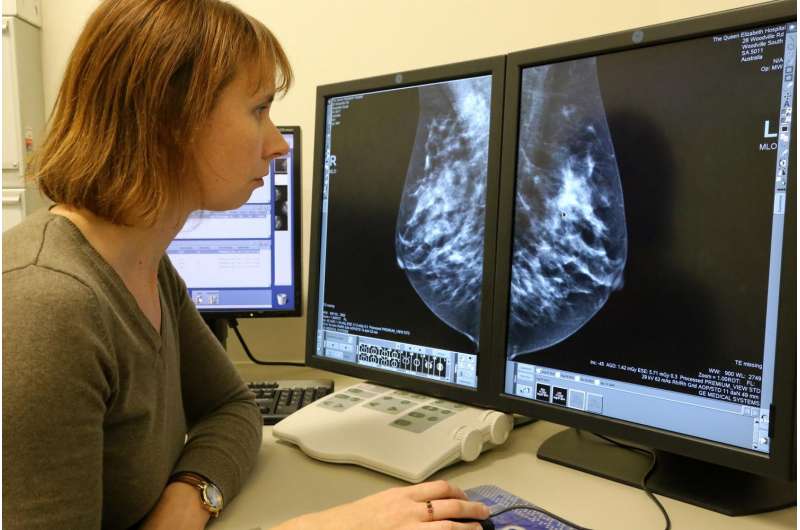Breast density research edges closer to cancer prevention

Adelaide researchers are one step closer to breast cancer prevention after finding a new driver for breast density, an identified risk factor for breast cancer.
For the first time, researchers have shown that chronic low-level inflammation drives increased breast density and is associated with a woman's risk of developing breast cancer.
This finding opens the door for new approaches to treating density and preventing breast cancer through reducing inflammation.
Published this month in the international journal Breast Cancer Research, the research is led by The Hospital Research Foundation's (THRF) Breast Cancer Research Fellow, Associate Professor Wendy Ingman from the University of Adelaide.
"We induced a low level of chronic inflammation in our lab models and found it was a particular protein called CCL2 that caused the increase in inflammation. This led to an increase in the density in the tissue and also an increased risk of breast cancer," Associate Professor Ingman said.
"While it is already known that certain types of anti-inflammatories (such as aspirin) can reduce breast cancer risk, they are associated with longer term side effects and not recommended for women to help reduce their breast cancer risk.
"With this research we believe we may be able to identify the women most at risk of inflammation-associated breast cancer through measuring their breast density and therefore identify those who will most benefit from anti-inflammatory treatment," Associate Professor Ingman said.

Almost 8% of women have extremely high breast density and are more likely to develop breast cancer in the future.
"Our ultimate aim is to save women's lives and our breast density research is helping us learn more about what drives this area of breast cancer risk to help inform preventative treatments," Associate Professor Ingman said.
"The more we can understand the risks associated with breast cancer, the greater chance we have at treating each risk and preventing breast cancer from developing in women.
"The next step is to conduct further studies into which treatments are best to dampen the inflammation, and to look at the relationship between density and inflammation within a large population of women."
THRF Chief Executive Officer Paul Flynn said this research, supported by the local community, is essential to understanding breast density and why it is an identified risk factor of breast cancer.
"With the help of our generous donors and ticket buyers in the Hospital Research Home Lottery, we're very proud to support Associate Professor Ingman's vital research aimed at preventing breast cancer for women in the future," he said.
Dr Alessandra Muntoni, Director of Research Investment, National Breast Cancer Foundation said that more details on the association of breast density with breast cancer are emerging as researchers learn more about this complex disease.
"We welcome research that brings further light to risk factors for breast cancer and breast density with the ultimate view of tailoring screening and preventing breast cancer," she said.
More information: Xuan Sun et al, CCL2-driven inflammation increases mammary gland stromal density and cancer susceptibility in a transgenic mouse model, Breast Cancer Research (2017). DOI: 10.1186/s13058-016-0796-z
















